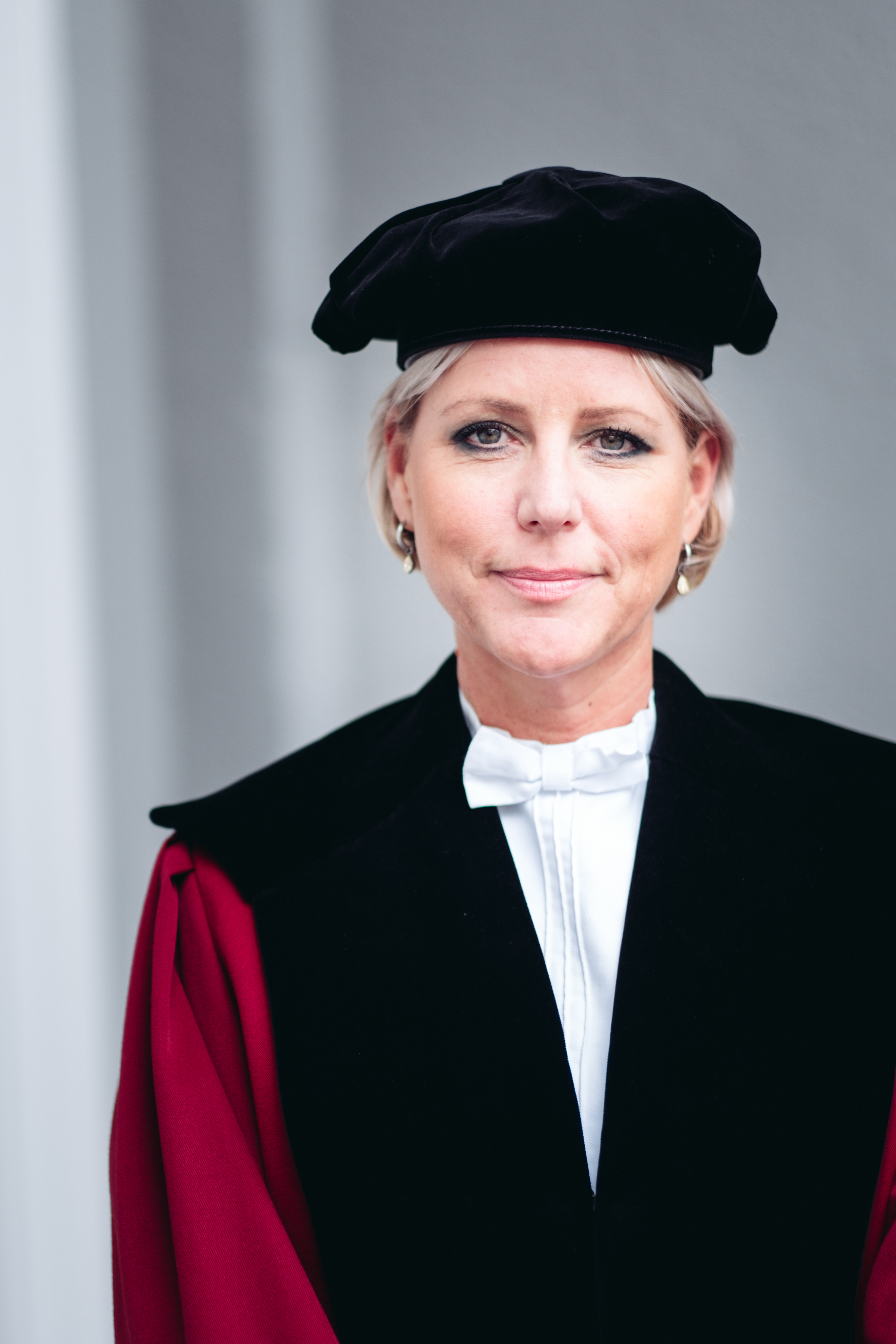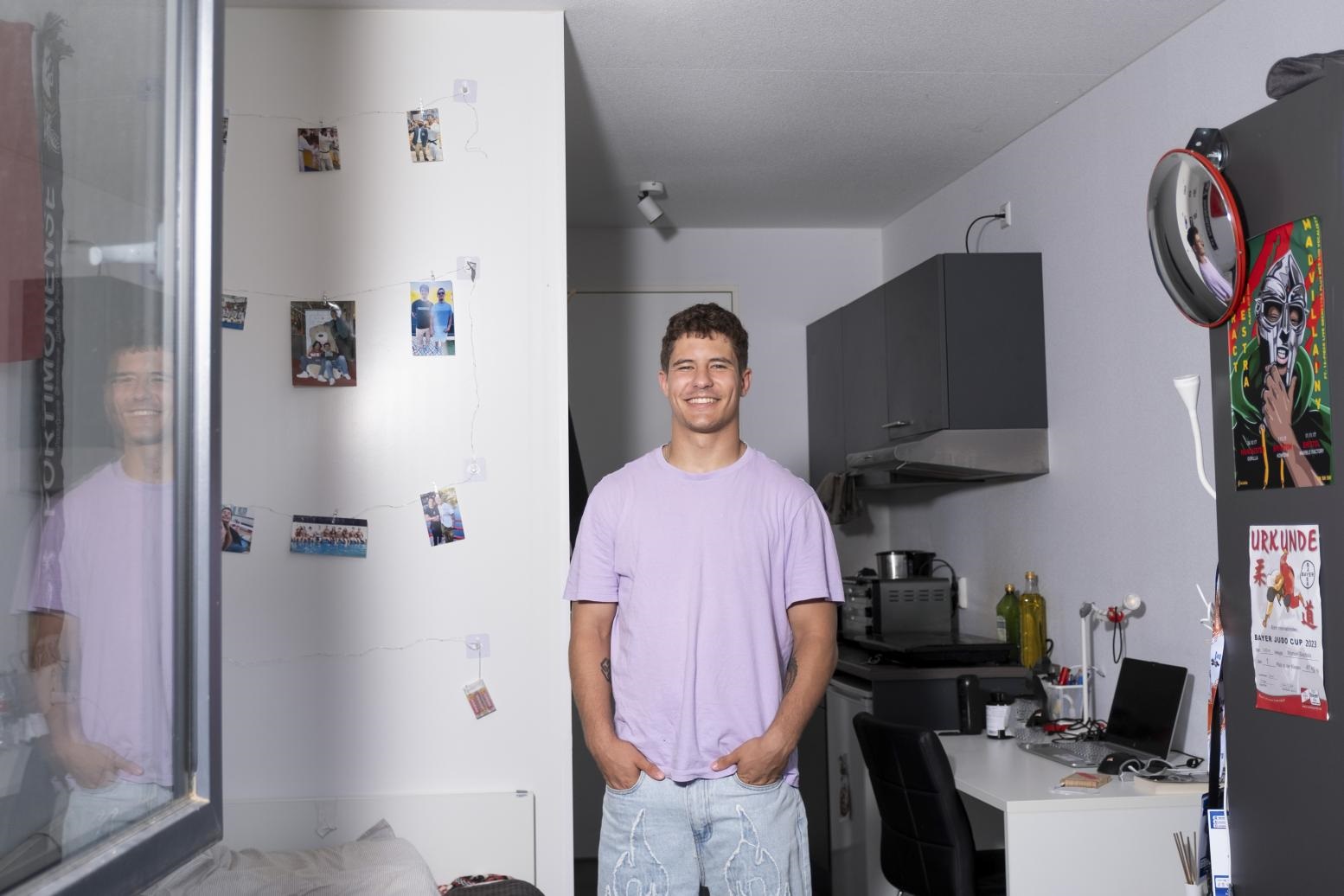How open should the university be?
“Sorry to keep you waiting, I was in a meeting.” A few minutes later than planned, Rianne Letschert, Rector of Maastricht University (UM) since 2016, calls. Her typical (online) work day starts early in the morning and last until nine o’clock. “After a working day, I want to throw all these devices into the bin but that’s not a good idea.” After all, these times demand what Letschert is known for: leadership.

So-called Zoom fatigue is not the only experience she shares with students. “I hear from students that they are getting used to the online environment, but everything that makes studying a complete experience has disappeared. A chat between tutorials, at the coffee machine, with teachers. I notice that myself, too. Everything is very efficient. You can’t have a spontaneous chat with a colleague or walk into their office.” During our conversation, Letschert talks of her admiration for the flexibility of staff and students. “But there’s a limit. Colleagues speak of a tipping point around the seven week-mark: people are done with Zooming, Teams-meetings, you name it. It’s not ideal, and it won’t be if classes remain online.”

Studio Europa Maastricht aims to position Maastricht as a meeting place for citizen dialogue and debate and establish a Centre of Excellence for research on Europe and European integration. With their unique expertise and network, they create a place to discuss and work on Europe.
Studio Europa Maastricht is supported by the partners of the Maastricht Working on Europe programme: the Province of Limburg, the City of Maastricht and Maastricht University.
This article is part of 'We're Open', a series of stories about the UM community’s many activities during the coronavirus pandemic.
That’s why she’s trying to lobby for more freedom in the next academic year. “Unless there’s a second wave, there’s no way we remain mainly online. Cities have been largely reopened, so it’s unthinkable that we cannot give lectures.” Letschert is happy with impending relaxations (students will be allowed to use public transport during rush hour from September onwards) and remains optimistic that changes regarding social distancing will follow. “I hope that if we take enough measures, we can make a strong case for the importance of on-site education for the development of this generation. It’s not just about earning credit.”

Balancing act
The picture is clear: many difficult decisions have to be made in a short time, and leadership is required. Letschert received the Woman of the Year Foundation’s top prize in 2019, partly due to what the jury described as “authentic leadership”, which she considers listening to be the key to. But how to listen to all voices now? Students from UM alone have started three petitions in recent months – on closing the university, no detriment policy, and online proctoring. “I speak to all faculties and many students”, Letschert says. “Faculties all have different cultures and no student is the same. The university is a micro-society. As a board, we have to try and get everyone in the same direction.”
As far as Letschert is concerned, the recent political discussions in the Netherlands about the internationalisation of academic education are somewhat shortsighted. “In the long term, we must attract foreign students given the Netherlands’ aging population. If we lock the door now and implement nationalist measures, we’d be throwing the baby out with the bathwater.” One of the major concerns of UM is that international students will not come at all because of coronavirus. “I hope so, I haven’t seen any decline in registrations yet”, Letschert says. “New students may be hesitant to move to Maastricht, so we are communicating the measures we’re taking to guarantee a good level of safety. For example, we’re adding people with physical health expertise to our mental health staff. Those people can direct students to the right professionals. That’s sometimes a quest, especially for our foreign students.”
There are concerns that coronavirus has set university back in some ways – given that it can no longer open its doors to students. But it is also prompting new innovations. “Researchers are suddenly putting aside competitive attitudes and taking on a sense of joint responsibility. Although competition is not necessarily bad, it’s excessive in academics. Researchers sit on data for a long time, which is bizarre. All of a sudden, that’s changing very rapidly.” The development is in line with the plans of the European Commission, which reserved € 25.8 billion for open science in its next multi-year plan. “This is definitely the time to take open science a step further”, Letschert says. “We must hold onto this.”
Disaster year 2019/2020
UM’s 2019/20 academic year has been defined by crises. First there was the hack, with the university closing its doors and systems until it paid the hackers a ransom. Then came the pandemic. Letschert: “Both the corona crisis and the cyberattack have questioned the open identity of the university. You want to receive students, colleagues and alumni everywhere with open arms: in the library and on the servers. That’s part of being a public institution. The hack taught us the hard way that this approach has limits. We paid those hackers, otherwise we wouldn’t have been able to re-open so quickly. It’s clear that we need to protect ourselves better, especially if we remain partially online for a long time. But we can’t avoid talking to financiers as well. Digital safety has a huge price tag. It shouldn’t come at the expense of education and research. ”

After a five-year spell as professor of victimology and international law, Rianne Letschert became rector of Maastricht University in 2016. Since July 2020, she’s been the chair of a taskforce that maps the consequences of coronavirus for the Limburg province.
Also read
-
Moving orange spots on a yellow background are the first indication that something unusual is taking place in Maastricht's limestone quarry, Sint-Pietersberg. A closer look reveals that these are people clothed in orange vests. They are Maastricht Science Programme students and supervisors.
-
The area on the Sorbonnelaan in the Maastricht neighbourhood of Randwyck looked somewhat bare and remote about two years ago. This was mainly due to the modular and temporary appearance of the student houses that were quickly built there. Meanwhile, the area is increasingly taking on the character...
-
Two Law PhD candidates of the Maastricht Faculty received awards for their doctoral theses during the 21st International Congress of the International Association of the Penal Law in Paris.

